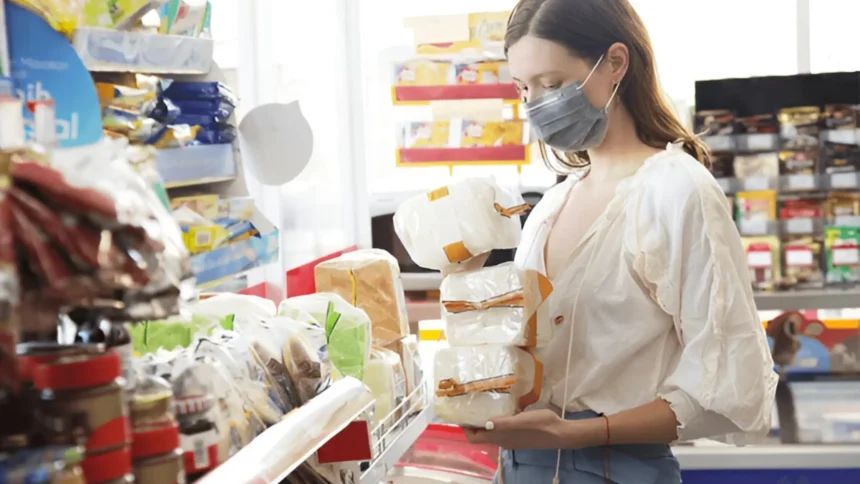Retailers jacked up prices a lot lately because of inflation and problems with getting products.
Over the last two years, inflation has gone up, making prices 20% to 30% higher. This has made it hard for people to decide what to buy, between things they need and things they want.
Some retailers have taken advantage of this by raising prices even more to make more money, especially during the pandemic when people were buying more. Some have even been accused of charging too much, taking advantage of the situation.
As people start spending less because of these higher prices, retailers are feeling the need to lower their prices or offer deals to get customers to come back.
Understanding Price Gouging
Price gouging is where Retailers jacked up prices of goods and are much higher especially during disasters, times when people need these goods more.
Since legislation differs from jurisdiction to jurisdiction then many jurisdictions regulate excessive pricing based on a percentage figure over ordinary prices.
People are subject to certain penalties and may be disenfranchised, fined, penalized, or jailed as the law permits.
They have been witnessed in healthcare, transport, and calamities such as hurricanes or wildfires where water, foods and/ or building materials would be comparatively expensive.
Supply Chain Disruptions
There is clear evidence that the escalation of costs in numerous industries can be attributed to supply chain issues. This is also one of the major reasons why Retailers jacked up prices.
Some factors like; congested ports, closed factories and unfavorable weather have hindered making and delivering products and thus a lack of crucial material.
Indeed, the pandemic disrupted many products, while the recent blocking of the Suez Canal by the Ever Given ship in 2021 impacted electronics and clothes among others.
Further, Hurricane Ida disrupted the availability of material used in creating common-use products including resins and plastics.
Consumer Behavior Changes
Due to Retailers jacked up prices, people are spending less and looking for cheaper options. This has made discount stores more popular, with the discount department store market expected to grow by 8.3% from $429 billion to $464.53 billion by 2024.
Many are also choosing cheaper brands or private labels for the same quality.
Retailer Strategies for Price Increases
Retailers use different methods to set prices to make more money and stay competitive.
They might start with high prices for new items to attract early buyers, use a higher price as a reference to make the lower price seem better, or set prices just below round numbers.
Prices can also change based on how much demand there is. To explain why prices go up, like because of higher costs for materials or better quality, it’s important for retailers to be clear.
When customers understand the reasons, they’re more likely to accept the price changes and stay loyal, even when the economy is tough.
The Role of Market Competition
Competition affects how Retailers jacked up prices and set prices, as they need to keep profits while also attracting and keeping customers.
Retailers often watch their competitors’ prices closely, adjusting their own to stay competitive without being too high.
For instance, during times of rising prices, they might offer price matching or discounts to attract customers who are looking for good deals.
A good example is Unilever, which increased its prices by 13.3% in 2022 but saw sales drop as customers moved to cheaper private label brands.
To counter this, Unilever lowered its price increases to 2.8% the next year, which helped them regain market share and increase sales by 1.8%.
Impact on Essential Goods vs. Discretionary Spending
In recent years, the Retailers jacked up prices of basic needs like food and household items have gone up a lot, about 19% more than before the pandemic, making people look for cheaper options, switch to store brands, or buy less of these items.
On the other hand, fancy things like designer clothes and accessories haven’t seen as much change in demand. People are still buying these items, but they’re more likely to wait if the prices go up.
This has led to luxury stores offering special deals to keep customers interested.
The Economic Ripple Effect
When Retailers jacked up prices in stores, it affects the economy a lot because it changes how much people buy.
When things cost more, people usually spend less on things they don’t need and more on things they have to have.
This can make the economy slow down or even go into a recession if it keeps happening.
For example, if prices go up, people might stop buying things they don’t need, which can make businesses sell less and might even make them cut jobs.
This can start a cycle where less spending leads to more economic problems. It’s really important that people spend money because they spend about two-thirds of the money a country makes.
Retailers jacked up prices offer a chance for a better relationship between shoppers and stores as they deal with economic ups and downs.






